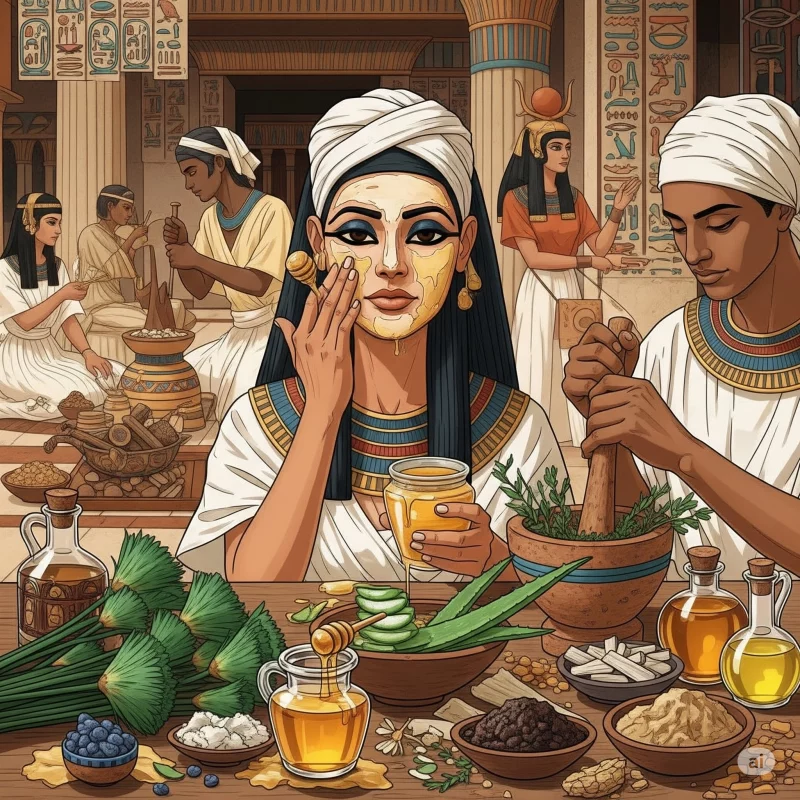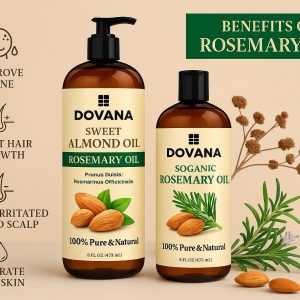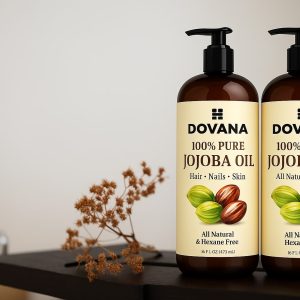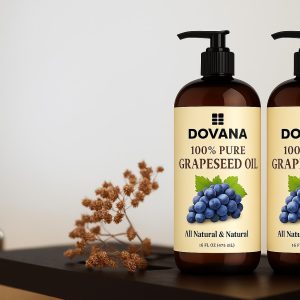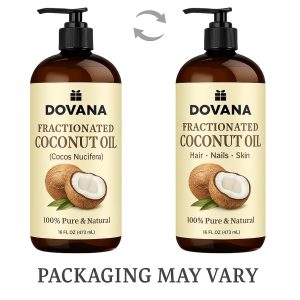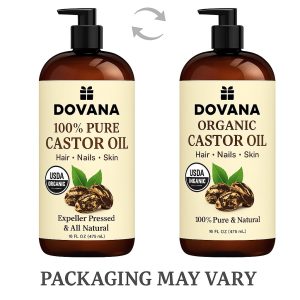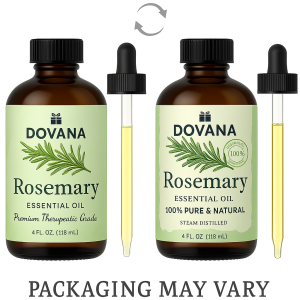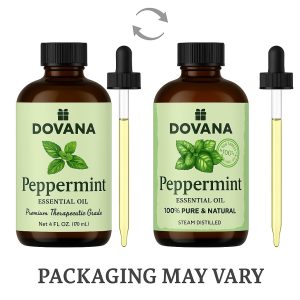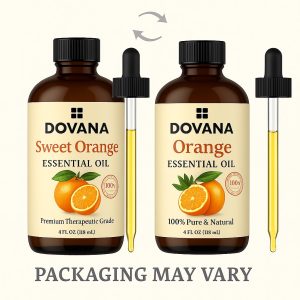Egyptian skin care
Egyptian skin care
Timeless Beauty: Unveiling the Secrets of Ancient Egyptian Skincare
For millennia, the allure of Egyptian beauty has captivated the world. Beyond the intricate eye makeup and elaborate hairstyles, the ancient Egyptians possessed a profound understanding of Egyptian skin care, rooted in their deep connection to nature. In a harsh desert climate, maintaining healthy, radiant skin was not merely about aesthetics; it was a testament to their resourcefulness and a reflection of their reverence for the body. This detailed exploration delves into the fascinating world of Ancient Egyptian skincare, highlighting the natural ingredients that formed the bedrock of their timeless beauty rituals.
Skincare as a Way of Life
From queens like Cleopatra and Nefertiti to the common person, Egyptian skin care was an integral part of daily life in ancient Egypt. It wasn’t just for the elite; even laborers received body oils as part of their wages. Archaeological discoveries and ancient papyri, such as the Ebers Papyrus, reveal a sophisticated knowledge of medicinal plants and their applications for skin health. The Egyptians believed that a well-cared-for body was essential for both earthly well-being and a prosperous afterlife. Their skincare regimen was holistic, encompassing cleansing, treating, and moisturizing, a mantra that still resonates in modern beauty routines today.
The Power of Nature: Key Ancient Egyptian Skincare Ingredients
The ancient Egyptians harnessed the bounty of their land and trade routes to create effective natural remedies for their skin. Here’s an in-depth look at some of their most prized ingredients:
- Milk and Honey: The Royal Elixir for Supple Skin
Perhaps the most famous duo in ancient Egyptian skin care, milk and honey were staples, most famously attributed to Queen Cleopatra’s legendary baths.
Milk: Beyond its luxurious appeal, milk (often donkey’s milk for its perceived purity and proximity to human milk) was revered for its lactic acid content.
Lactic acid is a natural Alpha Hydroxy Acid (AHA) that gently exfoliates the skin, dissolving dead skin cells and revealing a brighter, smoother complexion. This natural exfoliation promotes cellular renewal, helps to reduce the appearance of fine lines and wrinkles, and contributes to a more even skin tone. Modern skincare has embraced lactic acid for its remarkable benefits in improving skin texture and hydration.
- Honey: The “nectar of the gods,” honey was valued for its potent antibacterial, anti-inflammatory, and humectant properties. Its natural sugars draw and retain moisture, providing deep hydration and making the skin soft and supple. Ancient Egyptians used honey for wound healing, to soothe skin irritations, and as a natural cleanser. Its antioxidant content also helped protect the skin from environmental damage, making it a powerful anti-aging ingredient.
- Moringa Oil: The Desert’s Liquid Gold
Discovered in tombs in the Valley of the Kings, moringa oil (often called “behen oil” by the Egyptians) was a highly prized natural moisturizer and protector against the harsh desert climate.
- Benefits: Rich in antioxidants, vitamins A, C, and E, and essential fatty acids (particularly oleic acid), moringa oil deeply nourishes the skin. It possesses strong anti-inflammatory properties, making it excellent for soothing irritated skin and reducing redness. Its ability to penetrate deeply aids in skin regeneration and balances oil production, making it suitable for various skin types, from dry to congested. It was also used to keep skin soft and smelling sweet, making it a comprehensive natural skincare solution.
- Aloe Vera: The Plant of Immortality
Depicted on temple walls, aloe vera was a cornerstone of ancient Egyptian medicine and skincare, often referred to as the “plant of immortality.”
- Benefits: This succulent plant is renowned for its exceptional healing and hydrating properties. The gel extracted from its leaves is packed with vitamins, minerals, enzymes, and amino acids. It provides immediate soothing relief for sunburn and irritation, reduces inflammation, and promotes rapid skin repair. As a natural oxygenator, aloe vera draws and holds oxygen to the skin, contributing to a rejuvenated and youthful appearance. Its ability to form a protective barrier on the skin also makes it an excellent natural skin protector.
- Dead Sea Salts and Mud: Mineral-Rich Detox and Rejuvenation
The mineral-rich waters and mud of the Dead Sea were a popular destination for ancient Egyptian beauty rituals, with Cleopatra herself said to have attributed her beauty to their healing powers.
- Benefits: Dead Sea salts and mud are exceptionally concentrated with over 21 minerals, including magnesium, calcium, potassium, zinc, and bromide. These minerals offer a myriad of skin benefits:
- Exfoliation and Detoxification: The salts gently exfoliate, removing dead skin cells and impurities, while the mud deeply cleanses and draws out toxins, leaving the skin feeling purified and refreshed.
- Anti-inflammatory and Healing: Minerals like bromide and zinc have potent anti-inflammatory properties, making them effective for soothing conditions like acne, psoriasis, and eczema.
- Anti-aging and Firming: Minerals like silica and zinc play a crucial role in collagen synthesis and cell regeneration, helping to improve skin elasticity, reduce fine lines, and promote a more youthful complexion.
- Oils: The Foundation of Egyptian Hydration
Various plant-based oils formed the basis of ancient Egyptian moisturizing practices, protecting their skin from the arid environment.
- Olive Oil: A versatile and readily available oil, olive oil was used for cleansing (to dissolve dirt before scraping it off) and as a deeply nourishing moisturizer. Its rich antioxidant content protects against free radical damage, and its emollient properties help maintain the skin’s natural barrier.
- Sesame Oil: Documented in the Ebers Papyrus, sesame oil was used for its anti-inflammatory and antimicrobial properties, making it beneficial for treating various skin conditions, including acne. It provides excellent moisture and is rich in antioxidants.
- Almond Oil: Valued for its ability to “efface wrinkles” and improve complexion, almond oil is a gentle and nourishing emollient. It’s rich in Vitamin E, a powerful antioxidant that helps protect skin cells from damage and promotes skin regeneration.
- Castor Oil: Used as a balm for skin and hair, castor oil is a thick emollient known for its moisturizing and soothing properties. It was believed to aid in keeping the skin supple and addressing minor skin ailments.
- Frankincense and Myrrh: Fragrance and Healing
These aromatic resins were highly prized for their spiritual significance and their remarkable properties in ancient Egyptian skincare.
Frankincense Oil: Revered as the “sacred healer,” frankincense possesses powerful anti-inflammatory and antiseptic properties. It was used in balms and salves for its ability to rejuvenate skin cells, reduce the appearance of scars, and promote overall skin health. Its calming aroma also contributed to the holistic well-being of the individual.
- Myrrh Oil: Often burned as incense, myrrh was also a key ingredient in embalming and various skincare preparations. It has strong antibacterial, antifungal, and anti-inflammatory properties, making it valuable for wound healing and addressing skin infections. Like frankincense, it was believed to have rejuvenating effects on the skin.
- Natron: The Ancient Egyptian Cleanser and Exfoliant
Natron, a naturally occurring mineral salt (sodium carbonate), was used in conjunction with water to create a paste for cleansing and gentle exfoliation.
Benefits: Similar to modern baking soda, natron provided a mild abrasive action to remove dead skin cells and impurities, leaving the skin feeling clean and soft. It played a crucial role in their hygiene practices and pre-dates modern soaps, showcasing their early understanding of skin purification.
Modern Relevance of Ancient Wisdom
The legacy of Egyptian skin care continues to influence the beauty industry today. Many contemporary natural skincare products incorporate ingredients that were staples in ancient Egypt, a testament to their enduring efficacy. The emphasis on natural, gentle, and holistic approaches to skin health remains a powerful message from the past. By understanding the wisdom of our ancestors, we can appreciate the timeless power of ancient natural ingredients in achieving radiant, healthy skin, proving that true beauty often lies in the simplest gifts of nature.
Beauty Center
Beauty Center
Beauty Center
Beauty Center
Beauty Center

